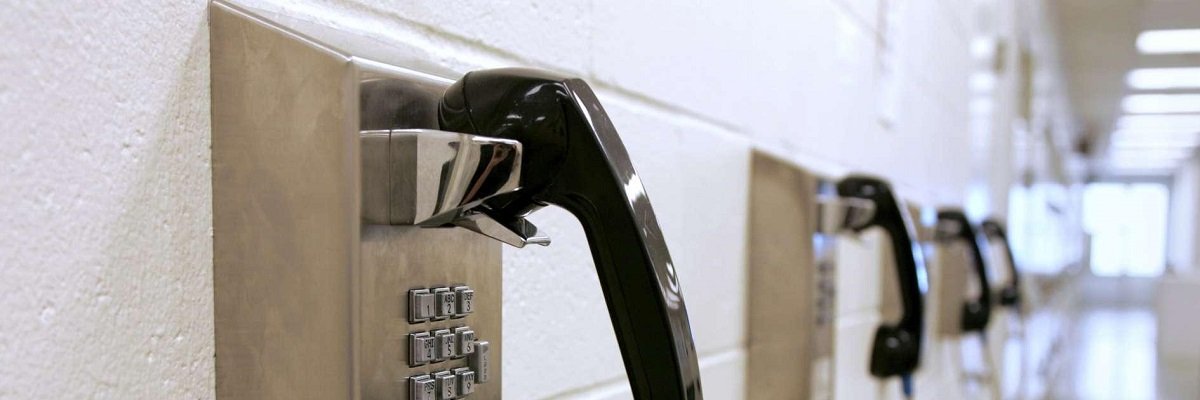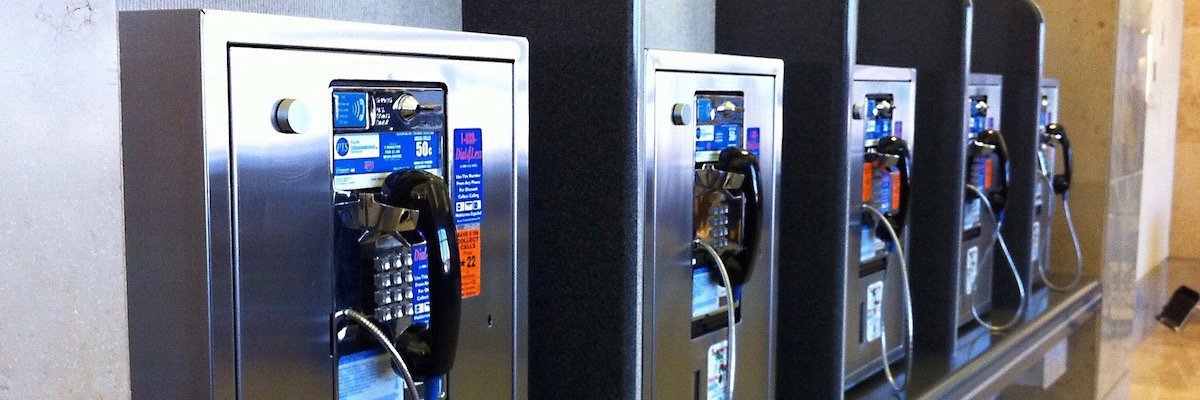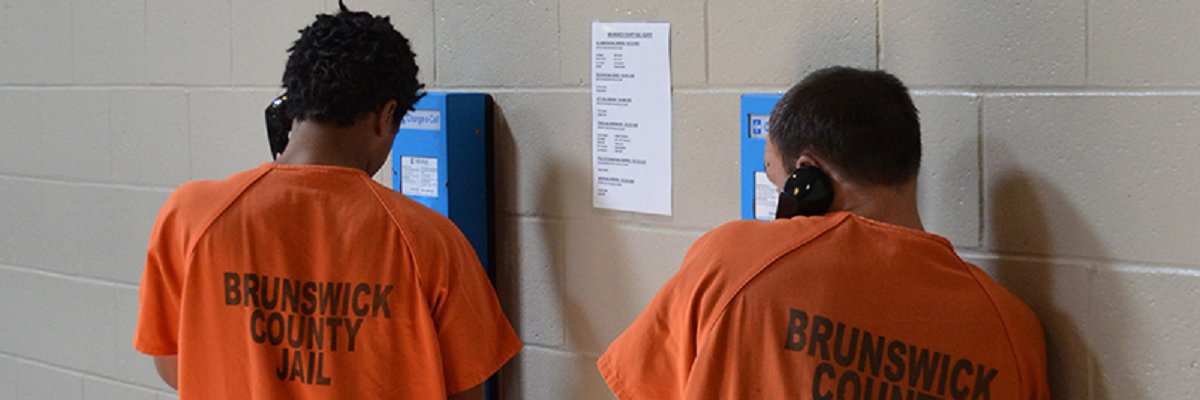In response to recent efforts by the Federal Communications Commission to restrict the cost prison phone calls, inmate phone companies used alternative routes of billing and dishonest service practices to undermine the intent of the regulations and charge consumers at rates far higher than those of civilian phones, according to consumer allegations recently released by the agency.
In hundreds of complaints provided to MuckRock, the friends and family of the incarcerated have presented a menu of ways that companies from well-known market leader Securus to smaller outfits like City Tele Coin and Regent Pay have found to resist the FCC’s attempt to reign in inflated charges for calling to and from prisons.
A correctional facility very rarely provides its own phone service. Instead, an inmate calling service (ICS) company will orchestrate an agreement with an individual facility or entire state system to provide phone equipment and maintenance at no-to-very little cost, recouping their costs with high service rates and fees for the inmates and families setting up the phone credit accounts. The prisons and jails themselves also benefit from the charging scheme; oftentimes they receive 10 - 50% of the charges as a commission.
Under the Obama administration, the FCC instated new regulations designed to cap the allowable charges. The FCC’s ability to manage local calls was immediately challenged, though its domestic long-distance cap - 21 cents a minute for debit/prepaid calls and 25 cents a minute for collect calls - remained in place. Earlier this summer, a court ruled in favor of Global Tel Link and other ICS providers, stating that the federal agency lacked the authority to make such restrictions within state bounds and suggesting that many of the same issues will remain for those affected.
Just this year, there have been over a hundred submissions to the FCC in the hope that they might be able to offer consumers some relief. While the complaints have not been individually-vetted, they echo commonly-reported company habits, like the use of fees at nearly every step of the process …
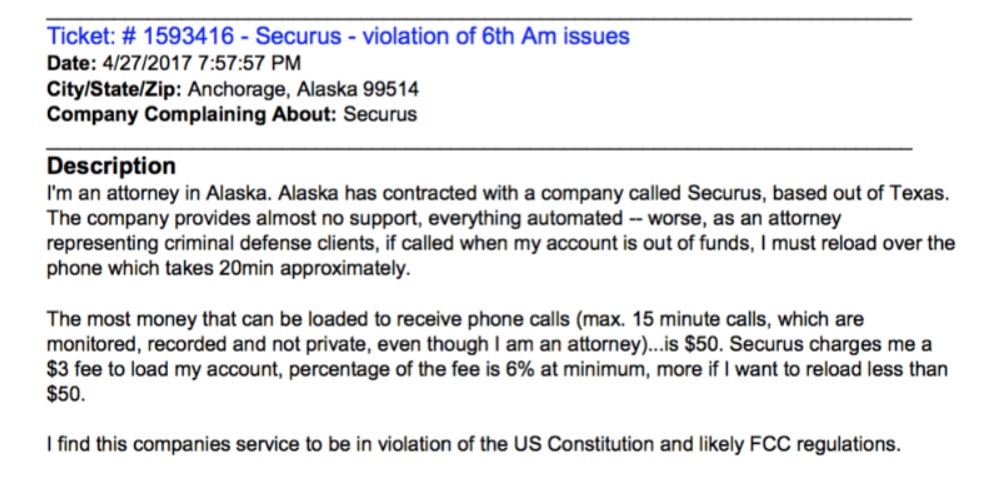
including the point at which they ask for payment.

Multiple consumers contended that their bills have doubled or tripled …

even for those interstate calls that should have been affected by the caps.

Multiple individuals found themselves charged inordinate amounts even when the calls lasted only a few minutes …

were never connected …

were never made …

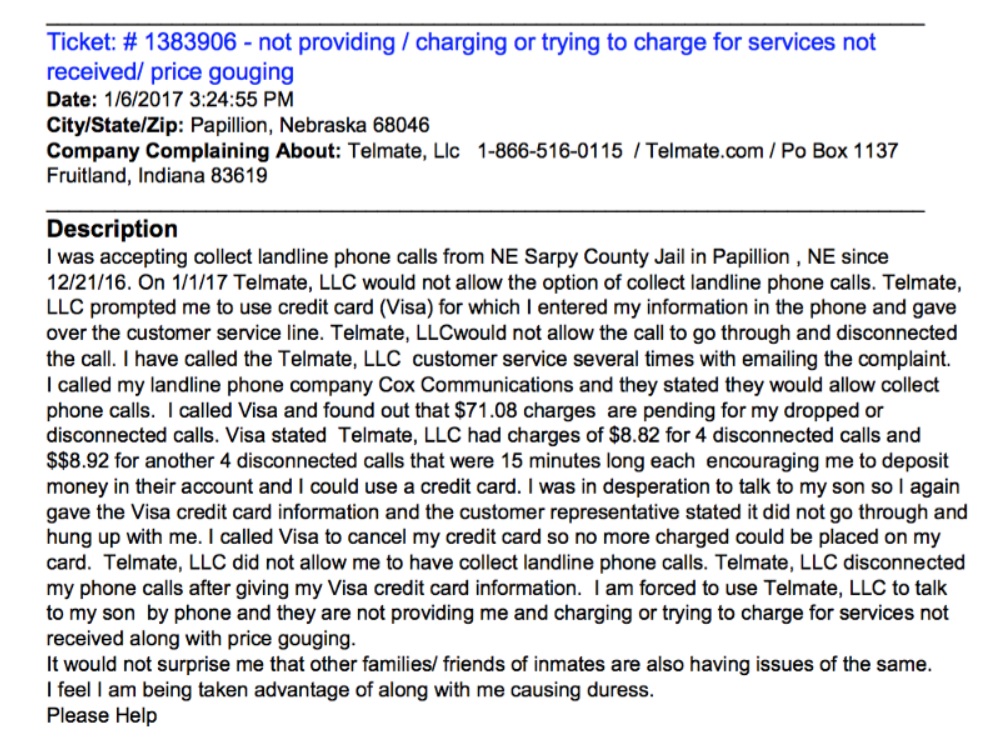
or have no record of having ever existed.

In one complaint, an individual who attempted to set up a VoIP phone number - a virtual phone number that can be used to route a call, such as many telemarketers have commonly begun to use - claims that the numbers were repeatedly blocked.
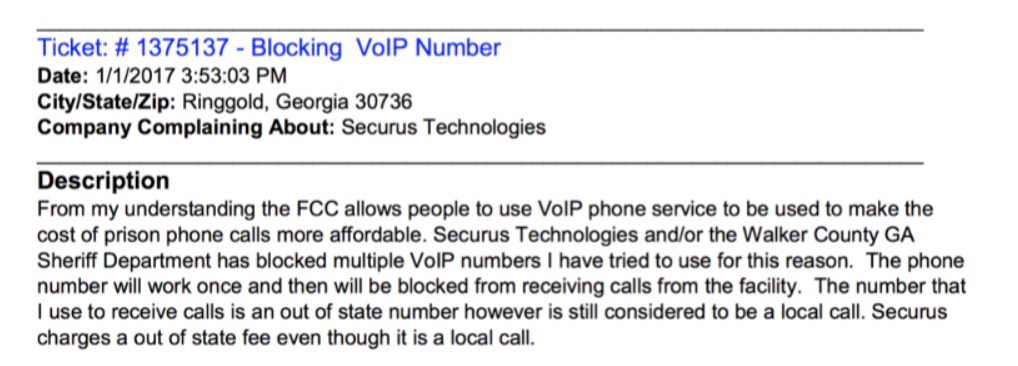
And common throughout them all is a theme of costs far out of line with the service provided …
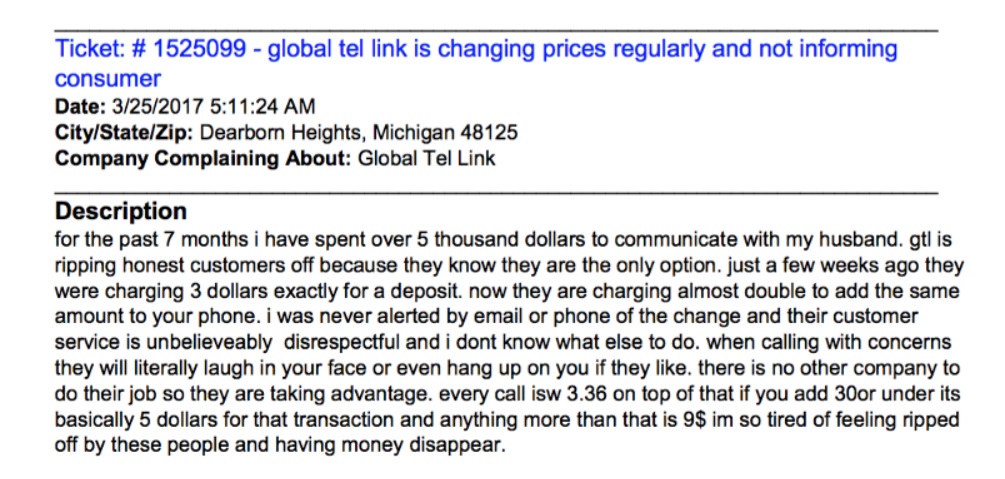
and an active denial of responsibility by the companies pocketing the profits.
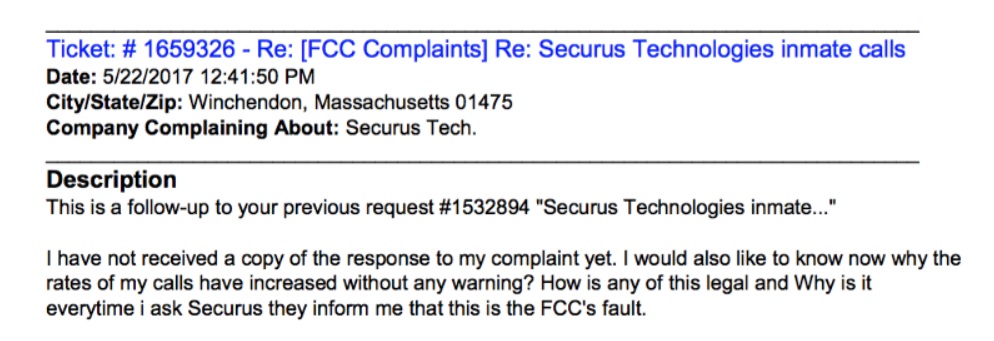
MuckRock will be continuing to report on the private phone industry and the casualties of prices - follow our related project here. Do you have a prison phone experience? Share it with us at info@muckrock.com.
Read the full complaints embedded below, or on the request page.
Image via Texas Lifestyle Magazine
